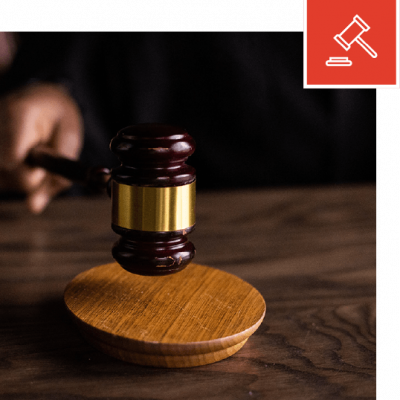Discover our competitive, innovative and intelligence-led directors and officers insurance. Speak with our leading experts today.

In an increasingly litigious corporate environment, authority figures find themselves being held personally liable and at risk of lawsuits due to perceived, or actual, negligence or wrongful acts.
Needless to say, positions of elevated responsibility attract a greater exposure to risk. This raises the potential for allegations of wrongdoing. Directors’ and Officers’ Liability Insurance provides protection to business leaders against financial repercussions.
Directors and Officers Liability
A heightened awareness of employee rights among workers increases the probability of a claim arising. Personal liability, as opposed to company liability, is the focus. Ultimately, company directors and officers are now increasingly subject to regulation and scrutiny, which could culminate in an official investigation.
Defending and protecting a directors personal liability as well as the company’s reputation and finances, is vital in the event of a claim.
Directors’ and Officers’ Liability Insurance is an indemnity policy that covers directors, officers and those in management positions as they undertake their official role. If a director or officer is found personally liable for a wrongful act due to an allegation or wrongdoing, the policy will protect them and the company from financial loss, whilst also paying any legal costs that may be incurred in defending the claim.
Claims may originate from employees, shareholders, investors, competitors or regulators. Examples of wrongful acts for which directors and officers can be held liable for include:
- Health & Safety
- Breach of trust
- Misleading information
- Negligence
- Fraud
- Defamation
- Pollution
- Wrongful trading
- Employment disputes

There are a variety of Directors’ & Officers’ Liability Insurance policy wordings. An expert management liability insurance broker should be engaged, to review and discuss the available coverage. Common exclusions include deliberate fraud, criminal acts, wilful misconduct or damages for bodily injury and property damage.
Current trends suggest that claims are likely to be increasingly driven by environmental, social and governance (ESG) factors. In addition, directors and officers are now also seeing a heightened cyber security risk and consequent legal implications since the move to remote working in 2020. Cyber security risk management is now viewed as a key element in a Board’s risk identification and management responsibilities.
There are 3 types of D&O cover, these are Side A, Side B and Side C. It is important to understand how these differ from one another:
Side A – Side A is the essential form of D&O Insurance. It is exclusively for directors and officers and will cover personal liability. In some instances, it can be viewed as financial protection for directors.
Side B – Side B will reimburse the company for the costs of indemnifying directors such as legal fees. It’s a form of protection for the company’s obligation to indemnity its directors and officers.
Side C – Side C will protect the company from any security claims. It operates as a protection for the company’s own securities exposure.
Employment Practice Liability
Employment law violations can cause a significant financial impact on a company. Potential, current and former employees can bring claims for discrimination or sexual harassment. Wrongful termination as well as claims alleging a hostile working environment can all result in costly litigation.
An Employment Practice Liability Insurance policy (EPL) is designed to indemnify the insured company against legal defence costs and damages awards in respect of where employees’ rights have been violated. Covers typically include for the cost of defence, settlements and judgements with these claims.
A specialist broker will be able to advise a business in the selection of broad form policy wordings, incorporating wide definitions of employees and employment practice violation policy triggers.
EPL insurance is sometimes provided as a package with the D&O insurance, but can often be procured on a stand alone basis, with its own separate limit of indemnity.
Commercial Crime
History shows that businesses suffer from an increase in commercial crime in times of financial recession.
A commercial crime insurance policy is designed to insure a business against the consequences of business related crime, such as theft or dishonesty by employees, electronic crime, forgery, even robbery.
Claims statistics show that even businesses with diligent and strong internal procedures are not immune from being hit by a commercial crime.
External fraudsters and dishonest employees have been seen to use imaginative ways to carry out their crimes, circumventing even the most robust control and security systems.
In the past, most commercial crime claims were caused by dishonest employees. However, this trend, whilst still significant, has been affected by the growing number of external frauds, particularly via means of social engineering.

Specialist contact

Specialist contact
Mark Dutton
Executive Director / Group Head of Broking & Business Development
T. +44 07831 366469
Arrange a call back
